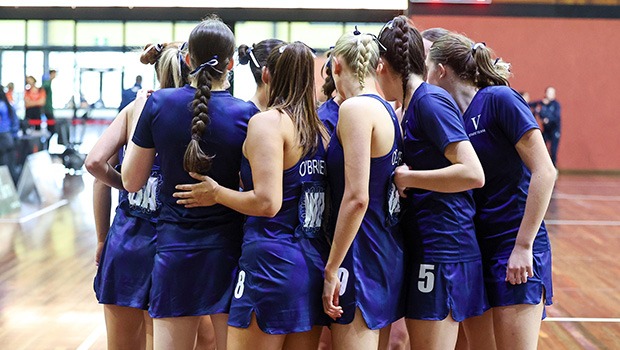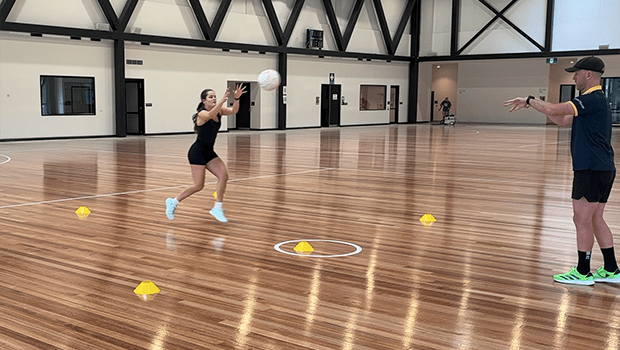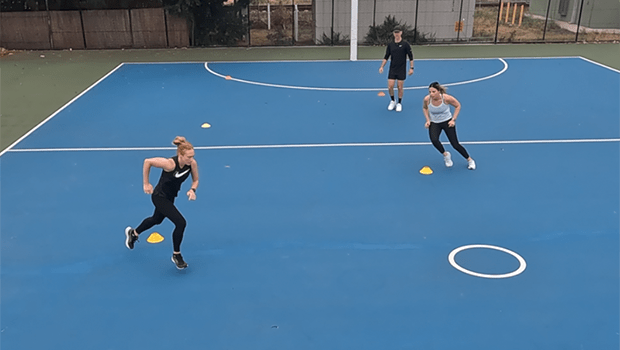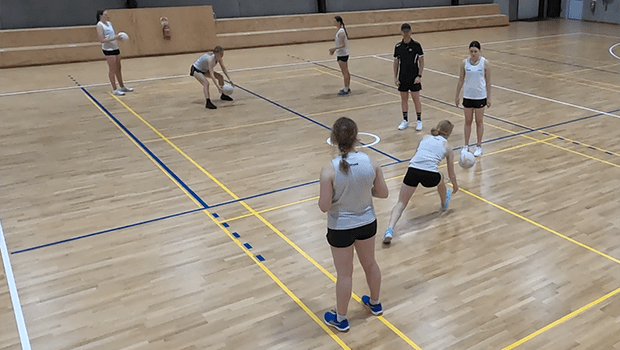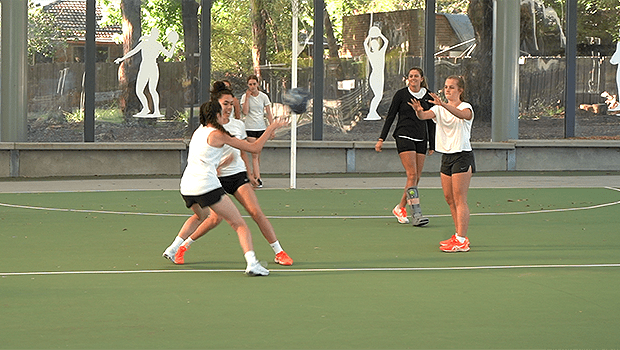
If you’ve ever been put through a netball pre-season as a player (we can hear your groans now!), chances are you’ve been subjected to your fair share of long running.
That is, continuous runs over multiple kilometres at predominantly the same speed and level of intensity.
But as coaches, is long running the best type of training for your netballers as you try to build their fitness to improve their on-court performance?
We asked netball strength and conditioning coach Scott Graham, who is currently working with the Geelong Cougars in the Victorian Netball League and has previously worked with Melbourne Vixens’ underpinning program the Victorian Fury.
Now, the Cougars and Fury players are elite netballers who train multiple days each week both on and off the court.
So, of course, there’s an inherent level of underlying fitness for athletes at that level, built up over many years of playing and training.
NEED IDEAS? CHECK OUT ALL OF OUR NETBALL-SPECIFIC FITNESS DRILLS HERE
However Graham says that even for junior athletes and netballers at lower levels, the times have changed and training has moved away from good old 3km or 5km runs.
When you consider that studies show that even the most dynamic netball positions (midcourters) have almost three seconds of rest for every one second of work on-court, it makes a lot of sense.
NETBALL = ‘GO, HAVE A REST, GO AGAIN’
For Graham, long runs simply aren’t sport-specific enough.
“Anyone who prescribes long running doesn’t understand the purpose of a high-intensity, intermittent, power-based sport, which is what netball is,” he says.
“Netball is ‘go, have a rest, go again’.”
“If you’re doing continuous activity, you’re not conditioning them for that sport.”
VARY THE INTENSITY
Graham says that while it’s OK for netballers to run non-stop for more than a few minutes at a time, it’s critical that the intensity fluctuates between periods of hard work and periods of recovery, just like in a game of netball.
“You can do continuous conditioning, but the intensity has to fluctuate,” he says.
“Whether it fluctuates within the drill or between the drills, that’s how you’re going to condition your athletes the best for this particular sport.”
For example, a short period of hard running or an intense drill might be followed by a recovery period of slow jogging or complete rest, before the next period of hard work starts.
WHAT ARE GOOD WORK-REST PERIODS?
Graham builds his initial pre-season periods around working the athletes at a rate that’s slightly above what will be required of them in a game.
In this way, actually playing a game should be a breeze, because the players are already accustomed to having shorter periods of rest than what they’ll get in a game.
“We operate initially in pre-season on a 20-second work, 10-second rest ratio with our running conditioning,” he explains.
“We never do anything higher than that. That’s a 2-1 work rest ratio, so they’re already training above what they typically experience in a game – they’re already training harder than they play.”
“Then later in pre-season we shift to a 15-second work, 15-second rest ratio, so a 1-1 work-rest ratio.”
WHAT COULD A RUNNING SESSION LOOK LIKE?
The beauty of training at a higher intensity for shorter periods of time is that your running sessions won’t take anywhere near as much time as a traditional long run.
And when you’re trying to get younger or less motivated players to comply with a holiday fitness program or pre-season program, you’re far more likely to get buy-in from them if they see they can do their running in 15-20 minutes, rather than 30-40 minutes of non-stop running without a break.
Using Graham’s initial pre-season breakdown, a potential running session to build the blocks for your players’ season could be:
- 5min warmup jog
- 3mins of: 20secs high intensity running, 10secs rest
- Rest 1min
- Repeat 3min set another 3 times, with 1min rest in between
Or if you’d like your players working for slightly longer periods, your session might look like:
- 5min warmup jog
- 3mins of: 30secs high intensity running, 15secs rest or slow jog
- Rest 1min-90secs
- Repeat set another 3 times
Both sets require well under 20 minutes of running, including a five-minute warm-up, and in addition to being more sport-specific and training your players’ bodies to recover quickly during periods of rest, the sessions – while still tough – will be far more palatable than 5km of pounding the pavement.
WHAT ABOUT ON THE COURT?
We use a similar theory when planning our netball fitness drills and ball work – players will work for short periods of time, often with a partner, followed by a similar period of rest.
Working in pairs is handy, as it provides built-in periods of equal rest. Just make sure your players are working at their maximum capacity during the work periods!
Of course, when it comes to kids and their general activity and fitness levels, any running is better than no running. If they want to take themselves for a 6km run on a Sunday morning, who are we to stop them? And it certainly won’t do them any harm. But as Graham says, when it comes to fitness for netball it’s about training smarter, not just longer and harder.
